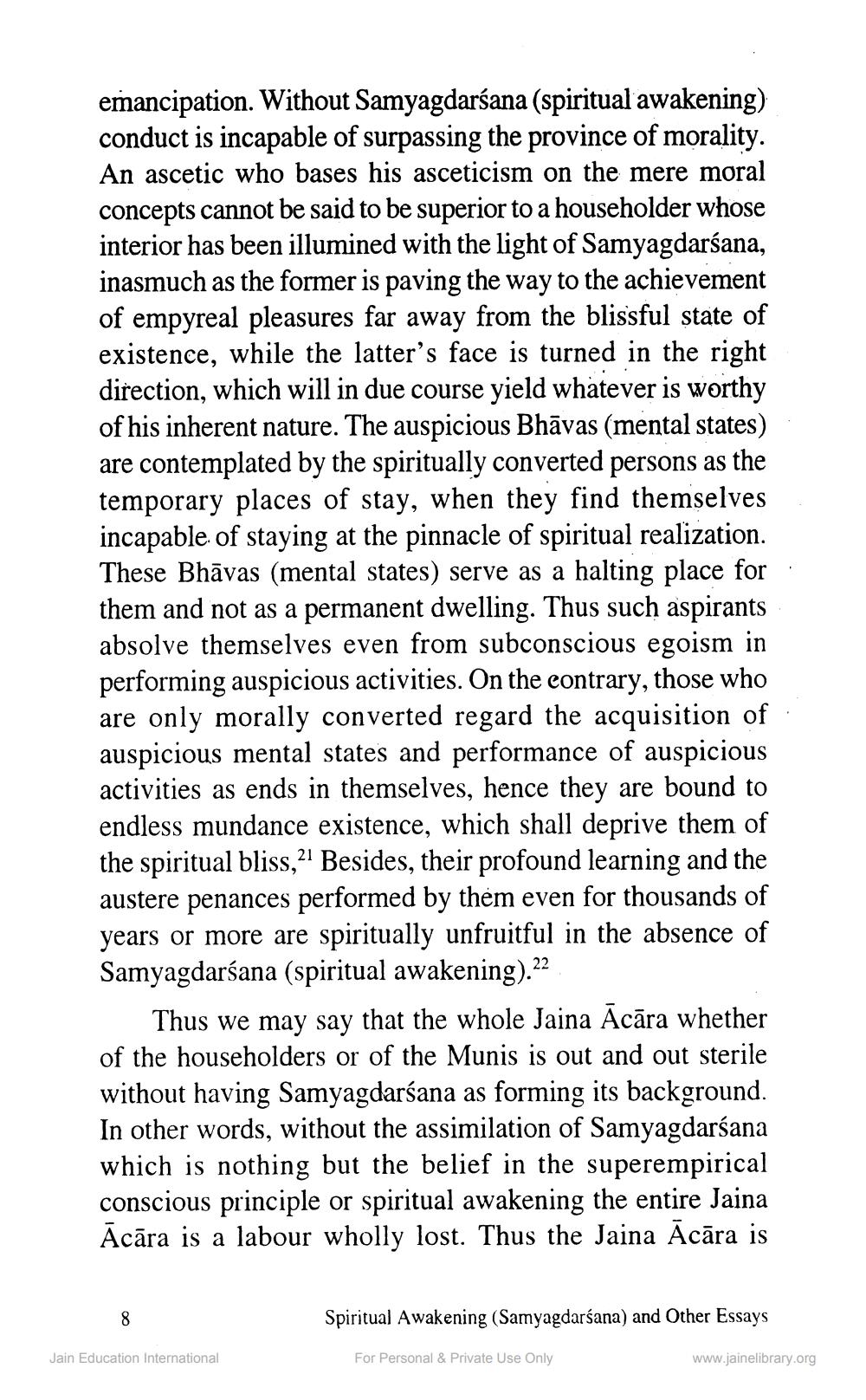________________
emancipation. Without Samyagdarśana (spiritual awakening) conduct is incapable of surpassing the province of morality. An ascetic who bases his asceticism on the mere moral concepts cannot be said to be superior to a householder whose interior has been illumined with the light of Samyagdarśana, inasmuch as the former is paving the way to the achievement of empyreal pleasures far away from the blissful state of existence, while the latter's face is turned in the right direction, which will in due course yield whatever is worthy of his inherent nature. The auspicious Bhāvas (mental states) are contemplated by the spiritually converted persons as the temporary places of stay, when they find themselves incapable of staying at the pinnacle of spiritual realization. These Bhāvas (mental states) serve as a halting place for them and not as a permanent dwelling. Thus such aspirants absolve themselves even from subconscious egoism in performing auspicious activities. On the contrary, those who are only morally converted regard the acquisition of auspicious mental states and performance of auspicious activities as ends in themselves, hence they are bound to endless mundance existence, which shall deprive them of the spiritual bliss,21 Besides, their profound learning and the austere penances performed by them even for thousands of years or more are spiritually unfruitful in the absence of Samyagdarśana (spiritual awakening).22
Thus we may say that the whole Jaina Ācāra whether of the householders or of the Munis is out and out sterile without having Samyagdarśana as forming its background. In other words, without the assimilation of Samyagdarśana which is nothing but the belief in the superempirical conscious principle or spiritual awakening the entire Jaina Ācāra is a labour wholly lost. Thus the Jaina Ācāra is
Spiritual Awakening (Samyagdarśana) and Other Essays
Jain Education International
For Personal & Private Use Only
www.jainelibrary.org




